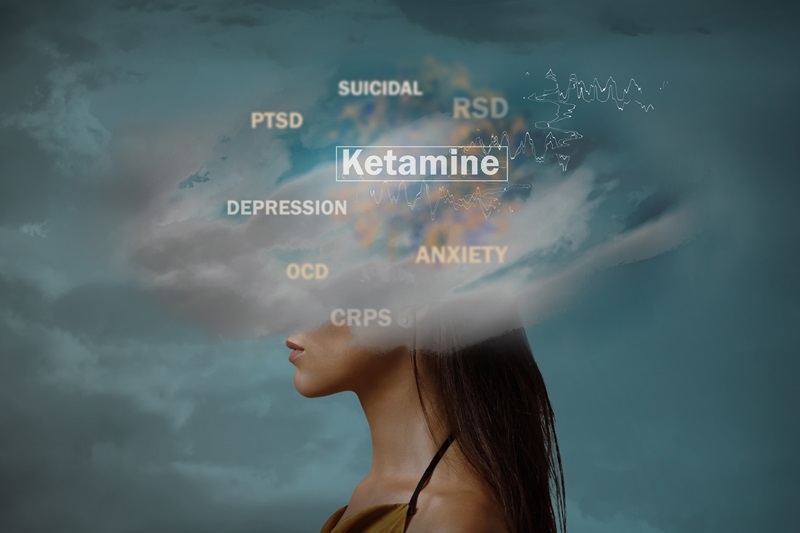Navigating the Journey: A Guide to Ketamine-Assisted Psychotherapy

Ketamine-assisted psychotherapy is an emerging treatment approach that combines the use of ketamine, a dissociative anesthetic, with psychotherapeutic techniques to address a variety of mental health conditions, particularly treatment-resistant depression and PTSD. Embarking on the journey of ketamine-assisted psychotherapy can be both exhilarating and daunting – but Take Charge Inc., run by Terri Dichiser, can help pull you through!
The History of Ketamine
Ketamine has been around for decades, but only in recent years has it found applications within mental health. So, what is ketamine? Ketamine, discovered in 1962 and patented in 1963, is an arylcyclohexylamine used as a rapid-acting general anesthetic agent in human and veterinary medicine. In 1970, the FDA approved it as an anesthetic drug. But beyond its primary application for anesthesia, it is used as an analgesic, anti-obsessional, and antidepressant compound and may possess neuroprotective and neuroplastic properties.
Ketamine and Psychotherapy
Ketamine’s use in therapy began with its established role as an anesthetic agent in medical settings. Researchers began investigating ketamine as a potential treatment for depression and other mood disorders based on its effects on neurotransmitter systems, particularly the glutamatergic system. In the mid-2000s, a series of studies showed that ketamine could produce rapid and robust improvements in mood and alleviate symptoms of depression, often within hours or days after administration. Ketamine-assisted psychotherapy emerged as a novel treatment approach that combined the acute effects of ketamine with the therapeutic benefits of psychotherapy. Sublingual ketamine refers to administering ketamine by placing it under the tongue, where it is absorbed through the mucous membranes and enters the bloodstream. This route of administration allows for relatively rapid absorption and onset of effects compared to oral ingestion, where the drug must pass through the digestive system. With Terri in charge at Take Charge Inc., you’ll go through a therapy session where she will walk you through the process.
How Terri Dichiser Uses Sublingual Ketamine
In a therapy session, ketamine is administered under medical supervision via the sublingual route in the form of a lozenge or rapid-dissolving tablet. During the ketamine session, Terri guides the patient through a therapeutic experience. The psychotherapeutic component may involve techniques such as mindfulness, introspection, imagery, and verbal processing to explore and address underlying emotional issues. This is a guide to assist in navigating the process of ketamine-assisted psychotherapy, from initial preparation to integration and beyond.
- Preparing for Your Ketamine-Assisted Psychotherapy Session: Before your ketamine-assisted psychotherapy session, it’s essential to take the following steps:
- Initial Intake: Schedule a session with a qualified healthcare provider to assess your suitability for ketamine-assisted psychotherapy and discuss any medical or psychological concerns.
- Medical Screening: Undergo a thorough medical screening to ensure that ketamine is safe for you, considering any pre-existing medical conditions or medications.
- Set and Setting: Work with your therapist to prepare a comfortable and supportive environment for your ketamine-assisted psychotherapy session, taking into consideration factors such as lighting, music, and privacy.
- During Your Ketamine-Assisted Psychotherapy Session: During your ketamine-assisted psychotherapy session, you can expect the following:
- Administration: Ketamine is taken orally
- Psychotherapy: Engage in psychotherapy sessions before, during, and after the administration of ketamine to facilitate emotional processing and integration of the experience.
- Guided Experience: Your therapist will guide you through the experience, providing support and guidance as you explore your inner landscape and process emotions and insights.
- Integrating Your Experience: After your ketamine-assisted psychotherapy session, it’s essential to integrate the insights and experiences gained:
- Reflection: Take time to reflect on your ketamine experience, journaling and discussing insights with your therapist to deepen your understanding.
- Support: Lean on your support network for guidance and validation as you navigate the integration process, sharing your experiences and insights with trusted friends or family members.
- Follow-Up Sessions: Schedule follow-up sessions with your therapist to continue the integration process and explore any lingering thoughts or emotions that arise.
Ketamine-assisted psychotherapy offers a unique and transformative journey toward healing and self-discovery. By following these guidelines and working closely with Terri, you can navigate the process of ketamine-assisted psychotherapy with confidence and resilience. Ketamine-assisted psychotherapy can be beneficial for mental health patients for several reasons, including: Rapid Relief
- Enhanced Therapeutic Process
- Increased Access to Emotions
- Strengthened Therapeutic Alliance
- Integration of Insights
- Potential Long-Term
While the right facilitator or guide can have a considerable influence on your experience with ketamine, your mindset is the most significant determining factor. The field is evolving, and Take Charge Inc. is embracing this modality to play a vital role in ensuring the safety, efficacy, and ethical implementation of ketamine-assisted psychotherapy sessions. As research continues to unfold, the potential for this innovative approach to contribute to the mental health landscape is both exciting and promising, opening new doors for those seeking transformative healing. Contact Terri at Take Charge Inc. at (913) 239-8255 to discuss your options for a session today.
E-News Signup
Increase your emotional intelligence by signing up for the brief monthly eNews with Terri’s emotional intelligence tips and info.
FORM WILL GO HERE...
